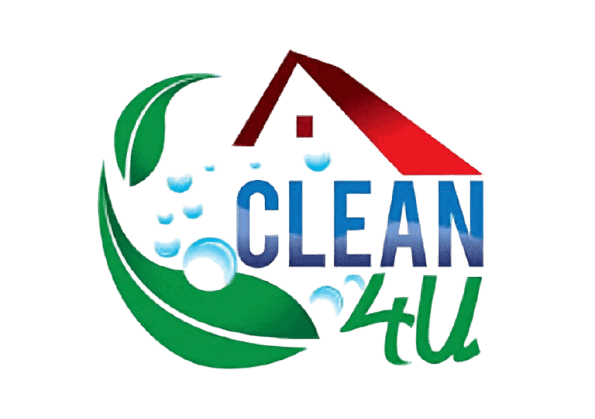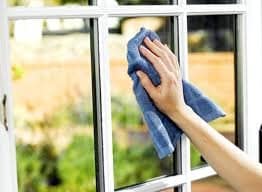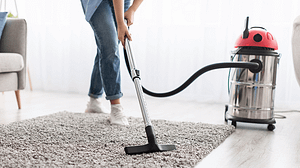Dublin deep house cleaning prices can vary widely, so when you plan your budget you should expect a typical three‑bedroom deep clean to cost around €150–€250; overall averages range €120–€300. You should watch for hidden fees and added charges for specialised services, while benefiting from experienced professionals, time‑saving service and competitive pricing that deliver quality results and peace of mind.
Key Takeaways:
- Deep cleaning in Dublin for a three-bedroom home typically costs around €150–€250 (basic cleans ~€80–€120; specialised services such as carpet cleaning or end-of-tenancy cleans are extra).
- Price is driven by home size, cleaning frequency (more frequent visits lower the per-visit cost), and the type/extent of services or add-ons required.
- Choosing an experienced provider offers customised plans, competitive pricing, and time-saving, high-quality results.
Understanding Deep House Cleaning
Definition of Deep Cleaning
Deep cleaning targets the areas and issues that regular maintenance misses: inside ovens, behind appliances, skirting boards, grout and tile descaling, limescale removal from showers and taps, and intensive sanitisation of bathrooms and kitchens. For a typical Dublin three‑bedroom home you should expect the job to take roughly 3–6 hours (often with a two‑person team) and to cost in the range of €150–€250 depending on add‑ons like carpet shampooing or oven cleaning.
Professionals bring specialist equipment and stronger, targeted detergents (steam cleaners, descalers, high‑grade vacuums and carpet extractors) so they can remove embedded dirt, grease and biofilm rather than just surface dusting. Optional extras commonly charged separately include oven cleans (from around €25–€60) and carpet cleaning (starting near €60), which can push a one‑off deep clean toward the higher end of the price band.
Importance of Deep Cleaning
Deep cleaning protects your household health by removing hidden allergens, mould spores and bacterial build‑up that regular cleans often leave behind; if you or a family member has respiratory issues, addressing these hotspots can make a measurable difference. In addition, tackling mould growth and persistent damp early reduces the risk of structural damage and the need for costly repairs later—mould and mildew are the most common sources of ongoing indoor air quality problems in older Dublin homes.
Beyond health, deep cleaning preserves finishes and appliances: descaling and degreasing extend the life of kettles, taps and ovens, while thorough grout and sealant care delays retiling or resealing costs. When you’re moving out, investing in a professional deep or end‑of‑tenancy clean (typically €150–€250) often protects your deposit and avoids unexpected deductions.
Practical guidance: schedule a full deep clean about once or twice a year for most households; increase frequency to every 3–4 months if you have pets, small children, heavy foot traffic or known damp issues so you keep allergens and wear on surfaces under control.
Comparison with Regular Cleaning
Regular cleaning is maintenance: dusting, vacuuming, wiping surfaces and quick bathroom/kitchen touch‑ups performed weekly or biweekly to keep your home presentable. Deep cleaning is restorative and preventive: it includes the labour‑intensive, technical tasks that remove built‑up grime and address long‑term risks. Cost and time differ markedly—basic three‑bedroom maintenance can cost around €80–€120, whereas a proper deep clean lands at €150–€250 and takes significantly longer per visit.Quick comparison: regular vs deep
| Regular cleaning | Deep cleaning |
| Routine dusting, vacuuming, mopping; 1–2 hour visits typical | Inside appliances, behind/under furniture, grout and limescale removal; 3–6 hours |
| Lower per‑visit cost (~€80–€120 for three‑bed) | Higher one‑off cost (~€150–€250); optional extras increase price |
| Good for appearance and daily hygiene | Reduces allergens, prevents damage, improves air quality |
When you weigh options, think of regular cleaning as ongoing upkeep and deep cleaning as targeted maintenance that prevents bigger bills: a €200 deep clean that removes mould or limescale can avoid a €500–€1,000 repair or replacement down the line, and it’s the service you choose before tenancy handovers or after renovation works.Choosing based on needs
| When you should pick regular cleaning | When deep cleaning is better |
| Weekly upkeep, time‑pressed households, light soiling | Annual overhaul, post‑renovation, heavy soiling, allergy sufferers |
| Lower recurring expense | Higher one‑off cost, longer interval between sessions |
Types of Deep Cleaning Services
You’ll typically see four main categories on quotes: residential deep cleaning, commercial deep cleaning, post-construction deep cleaning and specialised cleaning (carpets, ovens, end-of-tenancy). For a standard three-bedroom in Dublin expect the well-cited range of €150–€250, while add-ons like oven cleaning (~€30–€60) or carpet cleaning (from €60) are often priced separately; mould removal and work involving hazardous debris will push costs higher and usually require certified teams.
- Residential: full-home deep cleans, inside appliances, baseboards, behind appliances.
- Commercial: offices, retail, quoted by size or hourly team rates; often scheduled outside business hours.
- Post-Construction: heavy dust removal, paint/adhesive residue, clearance of fine particulates.
- Specialised: carpet, upholstery, end-of-tenancy — priced per item or room.
| Type | Typical cost & notes |
|---|---|
| Residential deep cleaning | €150–€250 for a three-bedroom; 2 cleaners x 3–5 hours typical; add-ons extra. |
| Commercial deep cleaning | Varies by sqm and complexity — small office €150–€400 per visit; larger sites quoted per sqm or hourly team rate. |
| Post-construction deep cleaning | From €200 for small refurb to €400–€800+ for large renovations; heavy debris or hazardous waste adds cost. |
| Specialised cleaning | Carpet cleaning from €60; end-of-tenancy typically €150–€250; oven/window cleaning priced individually. |
Residential Deep Cleaning
You should expect a residential deep cleaning visit to include inside cabinets, appliance interiors, descaling bathrooms, grout treatment, window sills and skirting boards — tasks that routine cleans miss. For a typical Dublin three-bedroom home cleaners commonly quote between €150 and €250; that typically covers two cleaners working 3–5 hours with standard materials supplied.
When you’ve got pets, heavy staining or mould, providers will itemise extra labour or specialist products; for example, a focused mould remediation or intensive carpet stain treatment can add €50–€150 depending on severity and whether anti-mould treatment is required.
Commercial Deep Cleaning
Commercial deep cleans are quoted against floor area, frequency and scope — a small 100–200 sqm office will often cost in the low hundreds per deep visit, while larger offices, retail units or industrial spaces are priced per sqm or by the hour for a cleaning crew. You’ll find that scheduling outside business hours (evening or weekend) can increase labour rates but reduces disruption to your operation.
Contracts for regular commercial work usually deliver a lower cost-per-visit; for example, a weekly deep clean for a 150 sqm office might be structured at a discounted rate compared with a one-off. Insured teams and COSHH-aware handling of chemicals are standard requirements for reputable providers.
More info: when you manage a commercial contract, insist on itemised quotes showing labour hours, number of operatives, cleaning consumables and any floor treatments (polish or seal) so you can compare like-for-like — a Dublin refurbishment clean of a 200 sqm office that required three operatives for 5 hours commonly totals around €400–€500 once floor polishing and window work are included.
Post-Construction Deep Cleaning
Post-construction cleaning addresses fine dust embedded across surfaces, paint splatter, plaster residue and clearance of loose debris; standard deep-clean crews use industrial vacuums, floor scrapers and specialist detergents to return a site to a usable state. Small renovation jobs may start around €200, but full-house refurbishments or extensions often land in the €350–€700 bracket depending on debris, access and whether builders’ waste removal is included.
Since you’re dealing with construction dust that can harm HVAC systems and finishings, expect providers to quote separately for duct cleaning, adhesive removal or delicate surface restoration — these are labour- and equipment-intensive tasks that raise the bill.
More info: if your project includes hazardous materials (old paint with lead or large volumes of mixed builders’ waste), request proof of safe disposal and a method statement; otherwise you may face unexpected surcharges when the cleaning team encounters non-standard hazards. After you compare itemised quotes, check insurance, references and the exact scope so you can choose the service that matches your budget and needs.
Inclusions in Deep Cleaning Services
Deep cleaning goes well beyond a surface tidy: you get targeted attention on areas standard cleans miss, including inside appliances, under sinks and along skirting boards. In practice, a full deep clean of a three‑bedroom home typically falls in the range of €150–€250, and that price usually covers intensive dusting, vacuuming, mopping, wiping internal cupboards, appliance exteriors, bathroom sanitisation and cobweb removal.
Providers often list add‑ons separately, so if you want oven, window or specialised carpet cleaning you should expect extra charges (carpet cleaning commonly starts at around €60 per room). If your home has heavy limescale, persistent mould or builder’s mess, those issues will increase the time and cost, so be prepared to budget above the headline rate.
Kitchen Deep Cleaning
You’ll get concentrated degreasing and sanitisation of high‑use zones: worktops, backsplashes, sink and taps, cupboard fronts and the interiors of accessible appliances. Cleaners will typically clean the hob, wipe down the extractor hood, empty and wipe the fridge interior on request, and move freestanding appliances to remove crumbs and dust underneath.
For deep grease removal and inside‑oven restoration many companies treat oven cleaning as an optional extra; if you add it expect a separate fee and specialised equipment. When you have food stains, burnt residues or sticky cabinet interiors, professional degreasers and steam cleaning are used to reach hygienic standards most household routines can’t match.
Bathroom Deep Cleaning
Bathrooms receive intensive treatment: lime and soap scum removal on tiles and glass, grout scrubbing, descaling showerheads, full sanitisation of toilets and sinks, plus cleaning of mirrors, fixtures and exhaust fans. You should expect technicians to target grout lines and shower seals where mould forms, using appropriate cleaners and, where necessary, mechanical scrubbing to restore finish.
When mould or heavy limescale is present, crews often allocate extra time and may use stronger chemical treatments or specialist steam units; mould removal and chemical handling carry health and safety considerations, so professionals follow protocols to protect you and your home.
More info: if your bathroom requires re‑sealing, tile regrouting or mildew remediation beyond surface cleaning, those are usually classed as specialist repairs rather than standard inclusions and will be quoted separately—this is one reason a deep clean quote can vary noticeably from the baseline €150–€250 for a three‑bed property.
Living Areas and Bedrooms
Deep cleaning living areas and bedrooms includes lifting and vacuuming under furniture, cleaning skirting boards and radiators, dusting light fittings and window sills, wiping internal doors and frames, and shampooing or steam‑cleaning upholstery on request. Your cleaner will also tackle mattress vacuuming and spot‑treating stains as part of a thorough refresh.
Carpets and rugs frequently require specialist cleaning to remove embedded dirt and allergens; since carpet cleaning is typically priced separately (from about €60), confirm whether it’s included when you book a deep clean so you avoid surprise costs.
More info: regular deep cleans reduce dust build‑up and allergens over time and, if you schedule recurring visits, many providers lower the per‑visit cost—so factoring frequency into your plan can save you money while keeping living spaces and bedrooms genuinely cleaner.
Factors Affecting the Cost of Deep House Cleaning in Dublin
The final quote you receive will hinge on a handful of predictable variables that cleaners use to price jobs: property size, frequency, location and any specialised tasks. Common Dublin-specific drivers include travel time into the city centre, parking charges for crews, and peak-season demand during spring or pre-holiday periods. You should expect standard estimates for a three-bedroom deep clean in Dublin to sit around €150–€250, while smaller apartments often fall well below that band.
- deep house cleaning
- Dublin
- property size
- frequency
- specific cleaning requirements
- specialist equipment
After you compare quotes that itemise time, materials and any surcharges you’ll be able to choose the option that best fits your budget and schedule.
Size of the Property
Square metres and room count directly map to labour time: a one-bedroom flat typically takes around 2–3 hours for a full deep clean, while a standard three-bedroom house can take 4–6 hours with two cleaners. You should ask providers whether their price is per hour, per cleaner or a flat rate; a flat-rate quote for a 3-bed at €150–€250 reflects combined labour and basic materials.
Multi-level homes, attic conversions or properties with many bathrooms will push the price up because of extra travel between floors and more sanitising time. If your place has high ceilings, extensive glazing or an outbuilding, expect those features to be listed as add-ons or to attract an increased hourly estimate due to specialist tools and longer cleaning cycles.
Frequency of Cleaning
Regular schedules reduce the per-visit cost because cleaners spend less time removing long-set grime. For example, a weekly or bi-weekly plan for a three-bedroom property typically brings the per-visit charge down into the €150–€200 range, since maintenance tasks replace heavy-duty restoration work. You should negotiate a discount for ongoing contracts — many companies offer 10–20% off compared with single-session deep cleans.
One-off or end-of-tenancy deep cleans usually cost more because dirt accumulation, neglected areas and appliances need intensive work and sometimes extra products. For monthly or one-off deep cleans for a similar-sized home you can expect quotes closer to €200–€250, and peak-demand dates (weekends, bank holidays) often carry a premium.
After you set a frequency that matches your lifestyle, schedule it in advance to lock in lower rates and avoid seasonal surcharges.
Specific Cleaning Requirements
Specialist tasks change the estimate substantially: carpet cleaning typically starts at around €60, oven or fridge deep-cleans are charged per unit, and post-build or hoarding cleans are priced by scope and may double standard rates. You should flag stains, pet hair, mould or heavy grease up front so firms can allocate the correct kit and chemicals.
Hazardous jobs — asbestos-disturbance, biohazard disposal, or serious infestations — require licensed contractors, insurance and sometimes waste permits, which significantly inflate costs. If your property needs such interventions, insist on written evidence of qualifications and a separate line-item for specialist fees.
After you provide a full inventory of required extras, you’ll receive clearer, itemised quotes and avoid surprise add-on charges on the day.
Average Cost of Deep Cleaning in Dublin
Expect Dublin prices to sit a little above the national average: typical deep cleans range from roughly €100 to €450 depending on property size and condition. Hourly rates commonly run €25–€45 per cleaner, while fixed-price jobs for standard properties are more common—think €90–€140 for a small unit, €160–€300 for medium homes and €250–€450+ for larger houses. Weekend bookings, same-day service and heavy soiling usually add a surcharge of 10–25%, and many providers charge extra for oven, window interiors or carpet shampooing.
For an illustration, a one-bed flat in Dublin 8 often costs around €85–€120 for a full deep clean (including kitchen cupboards and bathroom descaling), whereas a three-bed semi in Drumcondra typically lands between €180–€240 when carpets and appliance interiors are included. Get a written, itemised quote to avoid surprise extras and ensure you know whether supplies and equipment are included.
Pricing for Small Apartments
Small apartments (studios and one-bed flats, up to ~60 sqm) in Dublin usually cost between €80 and €140 for a deep clean. You can expect one or two cleaners to spend 1.5–3 hours tackling kitchens, bathrooms, skirting boards and interior appliance wipe-downs; add-ons such as oven cleaning or interior window washing typically cost an extra €20–€40 each.
For example, a studio in Smithfield with light wear might be quoted €85 for a standard deep clean, while a one-bed with heavy cooking grease or pet hair could push the price to €120–€140. Watch for add-ons like balcony cleaning, carpet shampoo or high windows that are often charged separately.
Pricing for Medium-Sized Homes
Medium homes (two- to three-bed, ~80–120 sqm) in Dublin commonly fall in the €150–€300 bracket for a full deep clean. A typical job uses a 2–3 person team working 3–5 hours; a realistic example is a three-bed in Clontarf quoted at €200 for kitchen, bathrooms, floors, appliance interiors and light carpet vacuuming.
Factors that push the cost higher include multiple bathrooms, stairs, heavy pet hair or built-up lime scale in bathrooms. Many providers offer package deals—if you combine oven cleaning and carpet shampoo you can sometimes save €20–€50 versus booking them separately. Bundle discounts can make medium-house deep cleans better value per square metre.
More info: if you prefer hourly pricing, doing the math helps—two cleaners at €30 each for four hours equals €240, which aligns with fixed quotes you’ll see; ask companies to itemise labour, materials and extras so you can compare like-for-like and avoid disputes over what’s included.
Pricing for Large Houses
Large houses (four bedrooms plus, 150+ sqm) are the most variable: expect quotes from about €250 up to €600 for extensive jobs in Dublin, with very large or heavily soiled properties at the top end. Jobs often require 3–5 cleaners and 6–10 hours of work—carpet shampooing, upholstery cleaning and multiple bathrooms significantly increase time and cost.
For instance, a five-bed property in Dalkey requiring carpet shampoo across three rooms and intensive kitchen degreasing can reach €400–€520. While per-hour or per-cleaner rates stay similar, the total climbs because of scale and specialist equipment needs. After-builders’ mess or hoarder-level clearances will push prices well beyond standard ranges.
More info: before committing, get a walkthrough and a written quote that lists carpet shampoo, upholstery, blind and inside-window work as separate line items; also check for weekend or parking surcharges (often 10–20%) and agree on extras in writing to avoid final-invoice surprises.
Additional Costs to Consider
Beyond the headline price you saw earlier, you should expect a handful of add-ons that shift a quote by anywhere from €20 to €150 or more. Common extras include specialised treatments, travel surcharges for locations outside Greater Dublin, disposal or bulky-item removal, and charges for parking or access permits — all of which can turn a €180 three‑bed deep clean into a €250–€350 job depending on what you ask for.
Always ask for an itemised quote so you can see which line items are optional and which are mandatory. That way you can decide whether to bundle services (often saves 10–20%) or supply certain products yourself to shave small amounts off the final bill.
Extra Charges for Specialized Services
Specialised tasks carry separate prices because they need extra time, chemicals and equipment: oven cleans commonly add €25–€60, single‑room carpet cleans usually start at €60 and climb to €120+ for larger or heavily soiled carpets, and upholstery cleaning typically runs €40–€100 per item. If you need mould remediation or after‑builders cleaning expect higher rates — mould treatment can start around €100 and will rise based on severity because it often requires specialist products and safety measures.
For example, combining a standard three‑bed deep clean (~€180) with an oven clean (€45) and two carpet rooms (€140) can bring the total to roughly €365; providers sometimes offer package discounts, so ask whether bundling those specialised services reduces the combined surcharge.
Travel Fees for Out-of-Area Cleaning
Within Dublin city limits most cleaners include travel in the base price or charge a nominal fee (€0–€15). Outside the Greater Dublin area you’ll regularly see flat surcharges of €15–€40 or per‑kilometre rates of about €0.40–€0.60/km for longer runs. If your property is 30–50 km from the cleaner’s depot, travel fees alone can add €20–€60 to the bill, and some firms add separate charges for parking or motorways.
Smaller independent cleaners often pass on exact fuel costs, whereas larger companies may use a fixed radius policy (e.g., free within 20 km, then a surcharge). Always confirm whether the quote is door‑to‑door or based on the cleaner’s depot location so you don’t get a surprise on the invoice.
Example: if a company charges €0.50/km and your round trip is 60 km, expect a €30 travel charge; add a €5–€10 parking/toll fee and that becomes €35–€40 — enough to change which provider gives you the best value.
Costs for Supplies and Equipment
Many firms include basic detergents, cloths and vacuuming in the price, but specialised chemicals, stain removers, eco‑friendly products or single‑use disposables often incur extras of €5–€30. Heavy equipment like truck‑mounted carpet extractors or industrial steamers can add €40–€150 to a job if the company chooses to charge equipment fees rather than absorbing the cost.
If you prefer green products or require anti‑allergen treatments expect a modest premium; conversely, supplying your own approved cleaning materials will often reduce the quote by €10–€25. Confirm whether waste disposal (e.g., for bulky rubbish or hazardous materials) is included — that can be a separate line item of €20–€60.
More info: renting specialist machinery for one‑off tasks (stone polishing, extreme degreasing, or truck‑mounted extraction) can be the difference between a €200 and a €350 invoice; always ask for the full breakdown of materials and equipment fees before you agree so you can compare like‑for‑like quotes.
Benefits of Professional Deep Cleaning
Beyond the obvious shine, professional deep cleaning delivers measurable benefits that affect your health, the lifespan of fittings, and the value of your time. You gain access to specialised equipment and techniques that target hidden grime—so what would take you a weekend can be completed in a few hours by trained technicians, often at a price (€150–€250 for a three-bedroom) that compares favourably with the cost of minor repairs or lost tenancy deposits.
Financially, a well-executed deep clean helps protect surfaces and appliances from wear caused by grease, limescale and grit; that preventative effect often delays expensive replacements. Socially and practically, it reduces the time you spend managing chores, lets you meet landlord or buyer expectations more reliably, and gives you documented results you can use in disputes or insurance claims.
Health and Hygiene Advantages
Professional teams use methods that go beyond surface tidying to reduce allergens, dust mites and airborne particulates; for example, HEPA-equipped vacuums capture up to 99.97% of particles ≥0.3 μm, which matters if you or a family member suffer from asthma or allergies. You also get targeted remediation of mould-prone areas—bathroom grout, window cills and under-sink spaces—where spore build-up commonly aggravates respiratory problems.
In practical terms, scheduling a deep clean every 6–12 months (or immediately after a renovation) dramatically lowers the microbial and particulate load in your home. If your property dates from before the 1970s, point out any concerns about old paint or insulation to your cleaner so they can advise whether specialist remediators are needed rather than a routine clean.
Capitalizing on Expertise
You benefit from technicians who know which products and temperatures work on which surfaces: steam cleaning for sealed stone and tile, hot-water extraction for upholstery and carpets, and calibrated disinfectants for high-touch areas. Equipment such as industrial extractors and commercial steamers deliver extraction pressures and temperatures that typical household appliances cannot match, producing a deeper, longer-lasting result.
Moreover, professionals follow systematic checklists and workflow that ensure consistency—kitchen extractors, oven degreasing, descaling of showerheads and targeted grout treatments are performed in the correct sequence to avoid cross-contamination and re-soiling.
For example, a standard two-person team using hot-water extraction can extract embedded soil from carpets and upholstery in roughly 2–3 hours for a three-bedroom property, whereas DIY attempts often leave >50% of residues and take significantly longer; that efficiency reduces the risk of rapid re-soiling and saves you time.
Alleviating Stress
Handing the job to professionals removes the logistical load of sourcing products, renting machines and planning a multi-hour deep clean around your life. You get a clear scope, a set price or estimate (avoiding surprise costs), and often a satisfaction guarantee or checklist that documents the job—useful if you need evidence for landlords or buyers.
Financially this is sensible: since a deep clean typically costs between €150 and €250 for a three-bedroom, it often represents a small outlay compared with the potential loss of a tenancy deposit or the hassle of a delayed sale caused by substandard presentation.
Additionally, many companies offer flexible booking (even weekend slots), insured staff and before/after photos; that means you’re not only saving time but also reducing the emotional and administrative burden of managing post-tenancy disputes or preparing for viewings.
The Role of Cleaning Equipment and Products
Eco-Friendly Cleaning Supplies
You’ll see suppliers promoting EU Ecolabel or similar certifications; choosing those products typically raises product cost by about 10–25% but reduces VOC exposure and chemical residues in your home. Concentrated, biodegradable cleaners cut packaging waste and, when dosed correctly with a dilution system, can reduce per‑job chemical spend by up to 40%.
Switching to microfibre systems and enzyme-based cleaners gives practical benefits: a good microfibre cloth (€1–€4 each) can last 200+ washes and cuts detergent use, while enzyme degreasers are demonstrably more effective on organic grime (ovens, sinks) without harsh fumes—valuable if you or family members have asthma or sensitivities.
Commercial-Grade Equipment
Professional teams use machines that change both speed and outcome: backpack or commercial vacuums (€250–€700), carpet extractors (€700–€3,500), rotary floor machines (€300–€2,000) and walk‑behind scrubbers (typically €2,000–€8,000) are common investments that justify higher hourly rates. Steam cleaners (€250–€2,000) and pressure washers (€150–€2,000) remove grease and sanitise surfaces much faster than hand methods, cutting labour time by 30–60% on typical jobs.
Consumables and maintenance also feed into your quote: pads, filters and chemicals add €5–€30 per job on average, while annual maintenance and depreciation can be 5–10% of equipment value, which agencies amortise across bookings.
Renting equipment is an alternative to capital purchase—expect rental costs around €80–€200/day for a scrubber and €50–€150/day for a carpet extractor—so some companies include an equipment surcharge (often €5–€20 per job) rather than a large upfront fee.
Safety Considerations
You must expect cleaners to follow Safety, Health and Welfare at Work principles: SDS (safety data sheets) on every chemical, correct dilution systems, and appropriate PPE—nitrile gloves, eye protection and, where aerosols or powders are present, FFP2/FFP3 masks. Incorrect dilution or overdosing not only leaves residues but can increase irritation risk for occupants.
Never mix chemicals on site; mixing bleach with acids or ammonia produces toxic gases (chlorine or chloramine) that can cause severe respiratory injury and require emergency treatment. Adequate ventilation, clear wet‑floor signage and routine training (practical refresher sessions, typically annually) are standard controls you should insist on.
Insist that wastewater and rinse water are handled correctly: improper disposal can breach local regulations and create slip or contamination hazards, while inadequate PPE or training increases the likelihood of insurance claims or workplace incidents.
Choosing the Right Cleaning Service Provider
You should prioritise providers that give clear, written quotes and a detailed scope of work — for example, ask whether the €150–€250 range for a three-bedroom deep clean includes oven and window cleaning or if those are extras. Get a site visit or a video walkthrough before any fixed-price quote; companies that refuse to see the property first often add surcharges for unexpected tasks or time overruns.
Look for transparent staffing and scheduling practices so you know whether one team or rotating staff will attend your home, and check whether cleaning materials are included or whether you must supply environmentally friendly products if that matters to you. Compare flat-fee versus hourly quotes carefully: an hourly rate of €20–€30 per cleaner can be cheaper for small jobs, while a fixed price often gives better value for whole-house deep cleans.
Clean 4 U: A Case Study
Overview of Clean 4 U Services
Perfect Clean offers end-to-end deep cleaning, covering kitchens, bathrooms, inside appliances, skirting boards, window sills and hard-to-reach mould-prone areas; for a standard three-bedroom deep clean they typically send a 2–3 person team and complete the job in 3–5 hours, with prices commonly between €150 and €250 depending on condition. You’ll get add-ons like oven cleaning (€30–€60), carpet cleaning (from €60 per room) and specialised after-builders’ cleans quoted separately.
They use professional-grade machines and eco-certified detergents, carry public liability insurance and run DBS/background checks on staff, so you’re covered if anything goes wrong. In practice that means you can expect an itemised quote up front, a 24–48 hour spot-fix policy for any missed areas, and the option to book recurring visits that lower the per-visit rate.
Conclusion
So in Dublin you can typically expect deep house cleaning to cost around €150–€250 for a three‑bedroom home, with a broader Ireland range of about €120–€300 depending on property size, cleaning frequency and any specialised jobs you add (carpets, ovens, end‑of‑tenancy). Your final price will vary with how much work is needed, access and whether you want recurring visits or a one‑off deep clean, so advertised ranges serve as a guide rather than a fixed rate.
To get the best value, request a detailed, customised quote that lists exactly what’s included and any extras so you can compare providers on scope as well as price; opting for experienced cleaners who offer tailored packages and transparent pricing will save you time and give you predictable results with
How much does deep house cleaning in Dublin typically cost?
For a standard three-bedroom home in Dublin expect roughly €150–€250 for a one-off deep clean. Nationwide averages range from about €120–€300 depending on size and scope. Basic cleans are cheaper (around €80–€120 for a three-bedroom), while specialised jobs (carpet cleaning, end-of-tenancy) carry separate fees.
What factors cause prices to vary between providers?
Price drivers include property size and number of rooms, current cleanliness (heavily soiled properties take longer), service type (basic vs deep vs specialised), frequency (regular visits lower the per-visit cost), number of cleaners required and total hours, travel/parking charges, supply and equipment needs, and timing or short-notice bookings. VAT or insurance-related fees may also be added.
What factors cause prices to vary between providers?
Price drivers include property size and number of rooms, current cleanliness (heavily soiled properties take longer), service type (basic vs deep vs specialised), frequency (regular visits lower the per-visit cost), number of cleaners required and total hours, travel/parking charges, supply and equipment needs, and timing or short-notice bookings. VAT or insurance-related fees may also be added.
What tasks are normally included in a deep clean and which are charged extra?
A typical deep clean covers dusting and wiping surfaces, vacuuming and mopping floors, kitchen cleaning including appliances and countertops, sanitising bathrooms, cleaning behind/under accessible appliances, baseboards, removing cobwebs and emptying bins. Common extras charged separately include oven cleaning, window cleaning, carpet steam-cleaning (carpet cleaning from around €60), and end-of-tenancy packages (often €150–€250 for a three-bedroom).
How should I request a quote to ensure it’s accurate and comparable?
Provide property size, number of bedrooms/bathrooms, photos or a short video, a list of specific areas or items needing attention, desired date and frequency, and any add-on services. Ask for a written breakdown (labour vs materials vs travel), whether prices are hourly or fixed, number of cleaners assigned, insurance and guarantee terms, cancellation policy, and VAT inclusion. Obtain at least two or three quotes for comparison.
What practical steps can I take to reduce deep cleaning costs in Dublin?
Reduce time required by decluttering before the cleaners arrive, bundle services to get package pricing, book regular maintenance (weekly/bi-weekly visits typically lower per-visit cost—often €150–€200 for a three-bedroom), be flexible on scheduling to take advantage of off-peak rates, and compare local providers for competitive pricing. Supplying basic consumables can sometimes cut small costs if the provider permits it.






